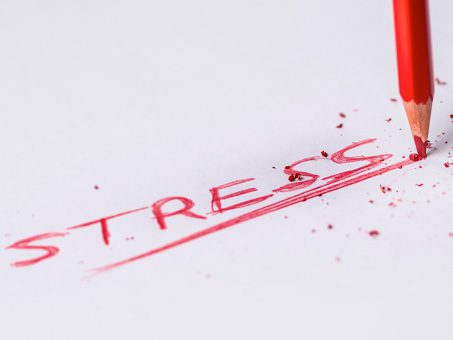 Stressed?
Stressed?
I’ve no doubt that you know what it feels like to be stressed – not many people reach adulthood without having experienced stress.
Even if you’re lucky enough to have had a very protected and happy childhood – there’s still the usual stresses of puberty, school exams etc., in the teenage years to give you a taste of what stress is like. Difficult issues that occur throughout our lives are bound to make us feel stressed from time to time, and that’s a normal reaction to difficulties, pressures, disappointments and losses, but if the stress carries on too long it can take a toll on our mental and physical health.
Stress is the unpleasant effects of the body’s instinctive reaction to difficult or demanding situations. It is the tension created by the extra adrenaline rush needed to help you cope with perceived (or imagined) threats. You may have heard of the ‘fight or flight’ response – where the hormone adrenaline is released into your bloodstream to give you extra strength and alertness to help you to either face the difficulty head-on and do what’s needed to protect yourself, or to help you to run from the danger as swiftly as possible. This adrenaline increase is a natural part of human biology and since the dawn of humanity people have depended on it in dangerous survival situations. However, in our modern lives the difficulties that cause us to feel stressed are less likely to be about a physical danger, but more about things like work demands, finances, relationships, troubling events or fear of bad things happening. The adrenaline hormone still kicks in – causing our heart to beat faster, our breathing to speed up, our muscles to tense – ready to fight or flight – but with nothing physically threatening to fight or run away from.
When we feel that stress, and the uncomfortable physical symptoms that come with it, it’s difficult to know what to do to help yourself calm down and feel better. Stress can cause you to feel irritable, anxious, on-edge, exhausted, tense, panicky and sometimes wanting to scream! If this goes on too long then it can lead to more serious mental and physical health problems – anxiety, depression, memory problems, problems with digestion, weight regulation, heart disease, reduced immunity to infections – the list goes on.
So, if you’ve been feeling stressed and aren’t sure what to do about it then you may be wondering whether counselling could help – perhaps you’re reading this blog for that very reason. The good news is that counselling really can help you…
Firstly, counselling can give you the much-needed space to talk about how you’re really feeling with someone like myself, who won’t judge you and can give you the emotional support and professional insight to help you. From there counselling can help you identify the causes of your stress, uncover any underlying issues that may affect your response to certain circumstances, and consider how you currently manage and react to stress. From this awareness, counselling can help you think through the changes you might like to make to reduce your stress levels, develop greater self-understanding, learn to be kinder to yourself and you can also learn stress management techniques such as mindfulness, self-care and relaxation exercises.
So, if you’ve been stressed for some time and feel that some additional support could be beneficial, then please get in touch – I understand just how awful ongoing stress is and would really like to help.
